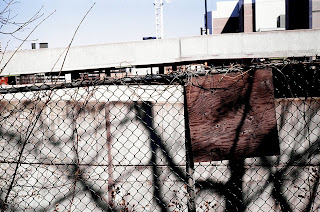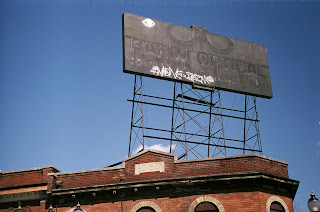It should come as no surprise that my postings have been less frequent, in proportion to the success or lack thereof of the Dutch at the World Cup, which has just (mercifully) ended.
First: I’m happy we made it to the Final.
Second: I’m happy we lost (even though I wanted us to win at the time).
Allow me to explain: I will always support Oranje, but that doesn’t mean I have to suspend my critical faculties while doing so. It also doesn’t mean I am living in a nostalgic cloudbank in which Holland must either play soccer like the Kirov ballerinas dance or else they are “cynical” – a word bandied about by once-every-four-years-I-pay-attention-to-soccer pundits.
In case I haven’t beaten this point enough, my Oranje is the team of 1998. It always will be. They were beautiful to watch (take a look at my Ryeberg essay if you haven’t already) and most aficionados consider that squad the greatest team of the competition, regardless that they lost to Brazil in the semi-finals. The thing is, if you accept that, then you must also accept they were the very same team who flamed-out against Italy in Euro 2000 in the quarters, in perhaps one of the most humiliating games I’ve seen us play: same squad, folks. How’s that for beauty?
The toughest question in the world if you are a Dutch international soccer player: What can you do when the public, the pundits, the former stars from the Golden Age all want to see you play ballet if playing ballet doesn’t win anything? Don’t get me wrong: I like the Oranje ballet – I am one of those people who can walk away from a loss, still chuffed that we played “as we should”. I do side with author David Winner’s thoughts about Dutch soccer philosophy, as laid out in his (brilliant) book, Brilliant Orange: The Neurotic Genius of Dutch Soccer. But inevitably you want to win something, and the only silverware the Dutch have is the Euro title in 1988.

This brings us to the present. Sadly. Sadly, because for the most part Oranje did not live up to the philosophy we had come to World Cup 2010 expecting. Under the direction of Bert van Marwijk, they took a detour: individual beauty, sure, when necessary, but collectively less a ballet than an assembly line with a very narrow directive: win, above all else. And they did. They were rusty at first and their games, outside of pockets of that ol’ Clockwork Oranje we hoped to see, were not pretty, but they won, and continued to win. Lord, I wanted them to win, too – I was a willing enabler.
When the final against Spain came, I was a nervous wreck. I can only imagine how it must have been in Holland, for those making their way to the Museum Square in Amsterdam where the games were shown for the public. They had come so far, had been through so much, for so many years: 1974, 1978, the glimmer of 1998, the disappointment of missing 2002. So much baggage that you wanted them to win just to shake off the voodoo of the past.
But as I got prepared that morning I visualized what it would be like if we won, if for the first time ever we won the Cup. Instead of tears of joy, I have to tell you, I saw that it would have felt as if we had cheated. As if in winning, we had not done so as ourselves but as a cunning machine, as if someone had invented a “Dutch Soccer Team” to take our place. I cannot describe how difficult it was to deal with that: to stare at a historic vindication within reach of your fingertips, knowing simultaneously there was something inherently inauthentic about it. In fact, had we won, I fear the “victory” would have irrevocably punctured the heart of Dutch soccer, as opposed to the bittersweet reality I live with now: we lost, Dutch soccer is merely dented. Coach van Marwijk’s corporatist approach has been repudiated, that is for sure. What I don’t know is who or what, philosophically speaking, has been vindicated, since we are bridesmaids once again.
Perhaps it is our souls? I can’t speak for yours, but mine is in a better if not exactly comfortable place right now.
 (*This is not to say that, as someone who writes stories to be read, I am exempt from any of what I go on to describe.)
(*This is not to say that, as someone who writes stories to be read, I am exempt from any of what I go on to describe.)





